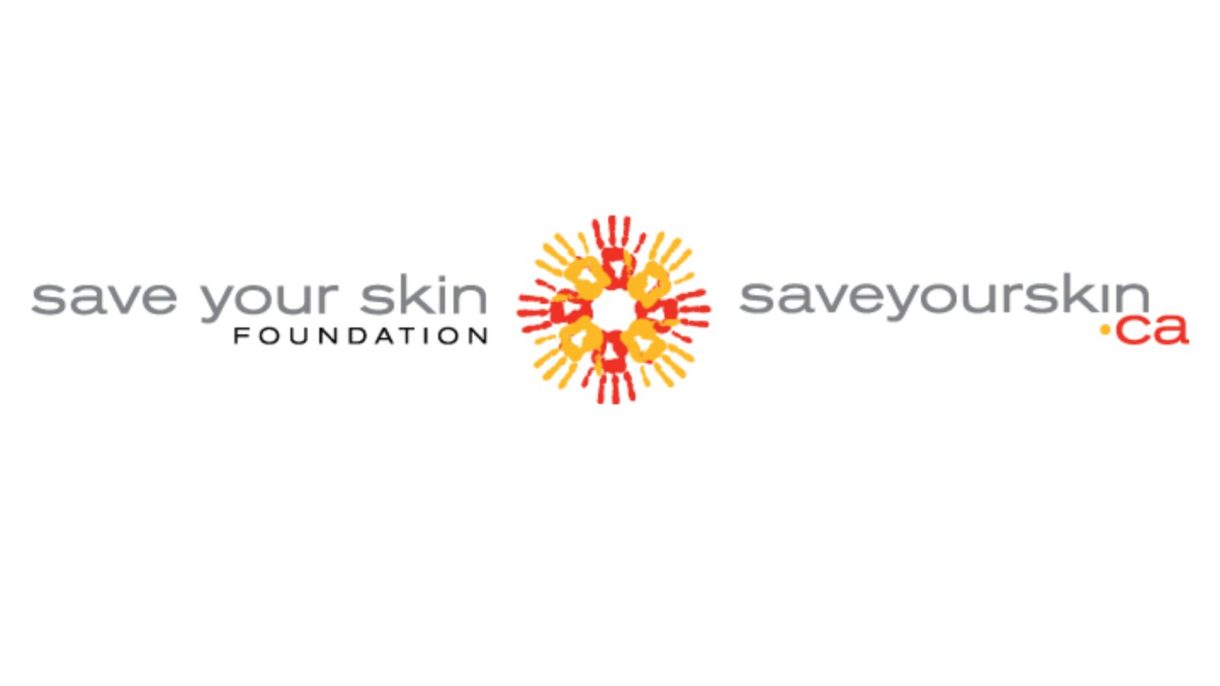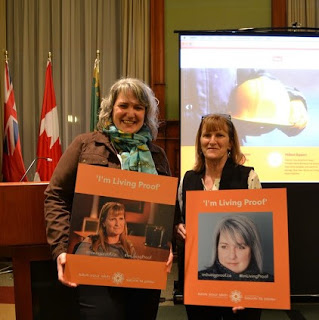Featured Survivor Story:
From Survivors to Advocates: Two Leaders are Pushing for Progress in Canada and Around the World

by Mara Klecker
Natalie Richardson, of British Columbia, Canada, hasn’t forgotten the fear and uncertainty she felt after her own Stage III melanoma diagnosis in 2014. It’s what fuels her work every day.
She also remembers the first moment during that dark and scary time that she believed someone when they told her that she’d be OK. That someone was Kathy Barnard, a Stage IV melanoma survivor and the founder of Save Your Skin Foundation, a Canada-based, patient-led organization dedicated to melanoma and non-melanoma skin cancers through education, advocacy and awareness initiatives. Save Your Skin is a part of the Melanoma International Patient Advocacy Coalition, which was formed by AIM in 2014 to collaborate with organizations around the world. That coalition works together to increase awareness of skin cancer and effect change in regulatory policies to improve treatment and care.
In those first weeks after her diagnosis, Natalie did what her doctors had told her not to do: She Googled her diagnosis. In the results, she came across AIM at Melanoma’s website and then found information about Save Your Skin, where she was able to connect with Kathy.
“Kathy confidently said ‘We’ve got this,’” Natalie said. “She gave me the hope that no one else had been able to…That’s what really led me into advocacy, so I could try to help others the way Kathy helped me.”
Natalie first began volunteering with Save Your Skin, which she said was “therapeutic.” She then joined the foundation full-time and now serves as its managing director.
The joke among Canadian doctors who work with the foundation: “We help save patients and then Kathy hires them.”
But it’s not just a quip. Many of those working with the foundation are melanoma survivors themselves – patients who credit their survival to the advocacy work of Save Your Skin and their partner organizations around the world.

Natalie Richardson, Kathy Barnard
“That just goes to show how patients do want to be involved in the process and they want to give back,” Kathy said.
That determination to “pay it forward” is what sparked Kathy’s passion for patient advocacy. She was diagnosed with metastatic melanoma in 2003 and told there was really only one drug to try in Canada at that time. So she underwent radiation and injected herself with that drug – Interferon – for a year. Then, in 2005, doctors found a mass in her left lung. Her son scrambled to find her better treatment options and contacted a doctor in the U.S., asking him to help save his mother.
That doctor helped her get into a clinical trial and she became only the fifth Canadian to receive Proleukin. By then, the cancer was also in her liver, adrenal glands, and kidney.
Her body’s response to the drug was “miraculous,” she said. At the end of the treatment, her doctor asked for her help in advocating for such drugs to be approved in Canada.
So she started the foundation. It started small and many of the first patients she worked with lost their fight with melanoma.
Then Kathy’s own cancer returned, this time in her small bowel, which doctors surgically removed. She then began another clinical trial, this time for Yervoy. She’s had No Evidence of Disease since 2007.
“I’m the longest Stage IV melanoma survivor that we know of,” she said. But that comes with its own survivor’s guilt.
“That motivates me every day,” Kathy said. The first five people who came to the foundation after it began were all patients under the age of 30. Each one of them died.
“I’ve never forgotten them; I’ve never forgotten their families,” Kathy said.
Still, she’s heartened to see more survivors. In the first few years of surveying patients around the world about their experience with a drug, Kathy noticed most of the replies were sent by caretakers because the patient had passed away. But those numbers are changing, she said.
“More and more, we’re seeing survivorship,” she said. “Through clinical trials and research and all the great work of organizations across the world, we can help make that difference.”
Though the healthcare systems differ from country to country, Kathy said the issues that patients face are often the same. That’s why partnerships like the one between Save Your Skin and AIM at Melanoma are so important. Through such connections, Save Your Skin can reach patients around the world to complete surveys that they can use to advocate for certain drugs to be approved in Canada.
Kathy first met Valerie Guild, the late founder of AIM, at a conference in Europe, before AIM had started its international coalition work. That meeting led to a partnership that has only continued to grow.
“What AIM does is incredible and so patient-driven,” Natalie said. “They serve as a beautiful example for us.”
Both Natalie and Kathy felt called to advocacy after their own melanoma experiences. They encourage others to get involved in the work happening in their own countries or find their own ways to collect the patient voice and take it to decision-makers.
“It’s amazing to me what we can do as patients in the advocacy world,” Kathy said. “I never would’ve thought my lonely little voice could be heard. Never underestimate the power of one.”






